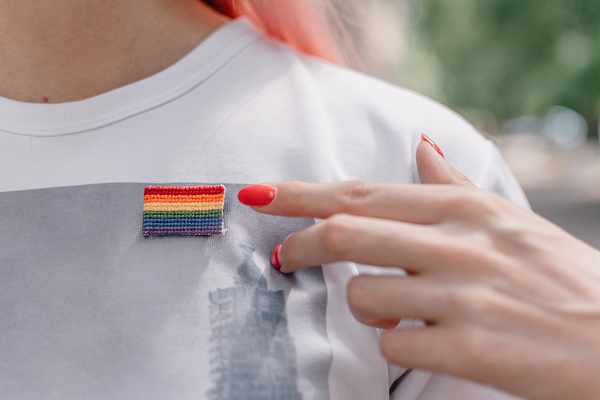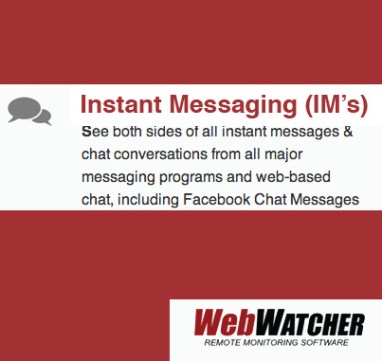Highlights:
- LGBTQ youth generally spend more time online than their heterosexual peers.
- The Internet offers safe spaces for teens who identify as sexual minorities to interact with peers and find supportive communities where they “fit in.”
- At the same time, LGBTQ teens are three times more likely to be bullied online than heterosexual peers.
- Parental monitoring software, when used judiciously, can alert a parent to signs of trouble for their teens.
The Internet Can Be a Safe Harbor for LGBTQ Youth
While most young people today spend at least some of their time on the internet, parents may not realize that young people who identify as LGBTQ spend even more time online than their peers. There are a number of reasons for this.
LGBTQ youth who feel alone in their hometown may use the internet to connect with other young people and teens like themselves, especially if they can’t easily make LGBTQ friends at their own schools or in their own neighborhoods. The internet also offers a safe place for LGBTQ teens to get help, advice, and support that may not be easily forthcoming from their parents or other authorities in their lives.
The Risks of Online Bullying for LGBTQ Teens
Unfortunately, LGBTQ teens are also at increased risk of online bullying. According to Out Online, a survey done by the Gay, Lesbian, & Straight Education Network (GLSEN), more than 42% of LGBTQ youth self-reported that they had been bullied or harassed online, more than three times higher than the average for non-LGBTQ youth (15%).
They may be at increased risk just because of the extra time they spend online or because they depend more on internet friendships and relationships than straight teenagers do. But they are also at higher risk because they identify as part of the LGBTQ community. There may be more LGBTQ teens online than in a specific teen’s own neighborhood, but the same bullies that bother LGBTQ youth in person are also present online.
Parents who are unfamiliar with online bullying may be inclined to dismiss or minimize the dangers. Parents who mostly remember bullying as a physical threat that children dealt with on the school playground may tell themselves that all their teen needs to do is turn off the computer, but that’s not true.
The reality is that when a teen is bullied online, that bully has found their way into the spaces that should be safest for that teen — their home, their bedroom, the pocket where they keep their smartphone. It’s often not as simple as just turning off the internet. Today’s teens rely on the internet for everything from schoolwork to socialization, and that reliance has only increased with the emergence of the COVID-19 pandemic.
Bullying Can Have Severe Consequences
Often, even when a teen leaves an online space where they’re being bullied, the bullying follows them anyway. Bullies that the teen knows in person can gather information online and use it to harass the teen in person. And even bullies who only know the teen online could render formerly safe spaces on the internet unusable to that teen. This removes needed support and resources from the bullied teen.
What parents may not realize is that teens who face bullying for identifying as LGBTQ online face all sorts of hazards. They’re more likely to experiment with drugs and alcohol as a way of escaping from their problems. They’re more likely to self-harm. They’re more likely to attempt suicide. Failing to keep LGBTQ kids safe from online bullying can put those kids in serious danger.
What Parents Can Do to Keep LGBTQ Teens Safe

The very first thing that a parent can do to protect their LGBTQ teenager is to make it clear that they accept their teen for who they are. Teens need to know that they’re not alone in their home and that they can come to their parents with their troubles and concerns. LGBTQ teens who know they have the support of their families may be less reliant on internet-based sources of support.
Parents also need to talk to their teens about the potential dangers of the internet. Teens need to know that they may face additional bullying online if they aren’t already aware of it. Talk to your teen about the importance of coming to you or another trusted adult if they encounter hate and bigotry online that they don’t know how to deal with.
Teens also need to know how to handle negative attention online when there isn’t an adult handy to help them. For example, your teen needs to know that they’re allowed to block people who treat them badly online, whether or not they know those people personally. Your teen should know how to block a user and report them to the moderators or account administrators on every platform they use.
How Monitoring Services Can Help
A monitoring service can go a long way toward helping to keep your teen safe. With parental monitoring software, you’ll be able to see what sites your teen visits, who is contacting them, and what those people are saying. You’ll also be able to see what your teen is saying and sending via text and instant message.
This means that you’ll be able to see if your teen is accessing sites or apps that you believe are unsafe. You’ll be alerted if your teen is talking to their friends about self-harm, suicide, or alcohol and drug use, and you’ll be able to intervene.
This doesn’t mean that you have to spy on your teen. There’s no need to read every single thing your teen says. They deserve a level of privacy, and a lack of it can also make teens feel unsafe. But you can spot-check your teen’s activity and correspondence, or you can set up alerts for certain words, phrases, or searches that might be red flags. It’s possible to give your teenager privacy while keeping an eye out for potential signs of a problem that needs to be addressed by parents.
As a parent, you know that life isn’t always easy for teens, and if your teen is or might be part of the LGBTQ community, they may be experiencing extra difficulties on top of what teens already face under normal circumstances. But knowing that your teen may be experiencing isolation or online bullying is an important tool. You can use that information to keep closer tabs on your teen, to have necessary conversations, and to teach them how to protect themselves and ask for help when they need it.
For more information about cyberbullying and how to get help if your teen is a victim, visit StopBullying.gov.
To find out more about how parental monitoring software can help keep your teen safe, get our free trial.





